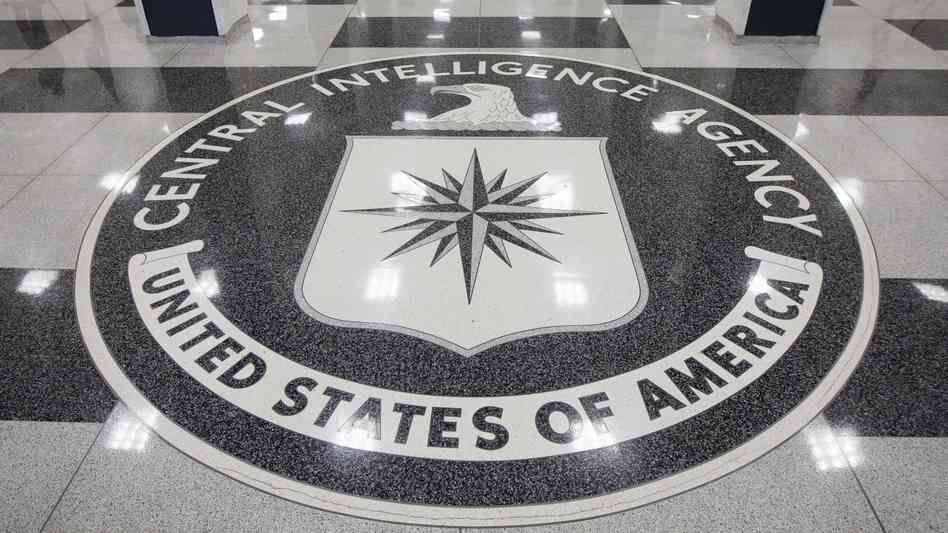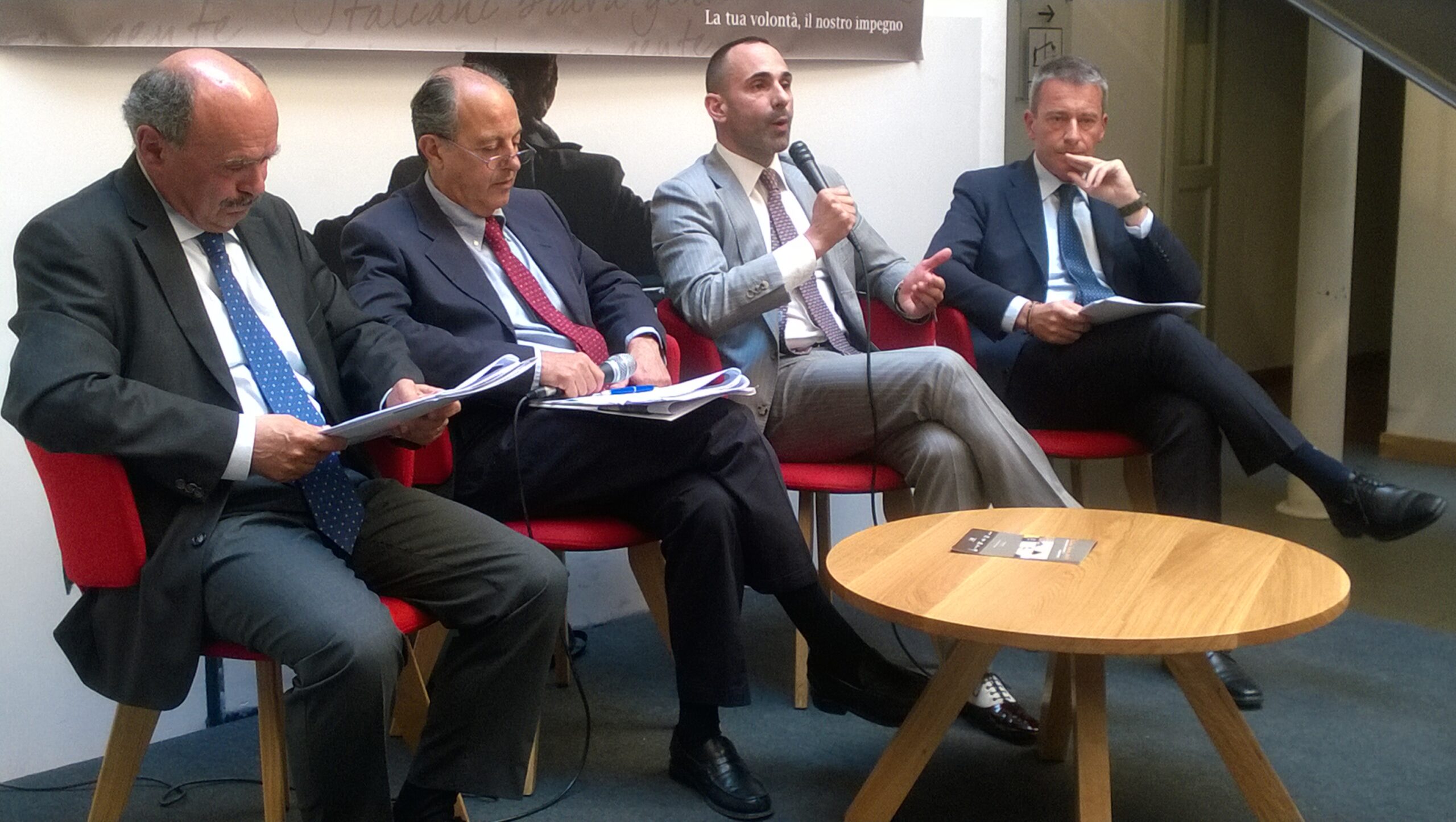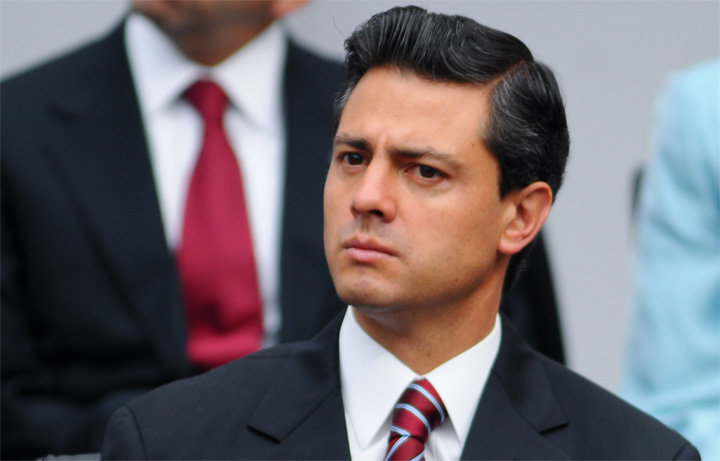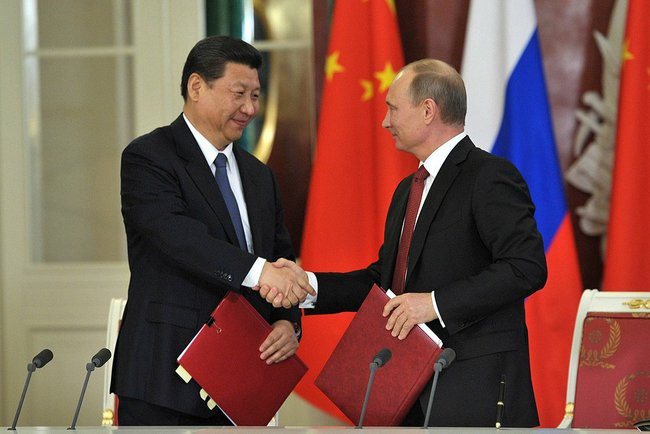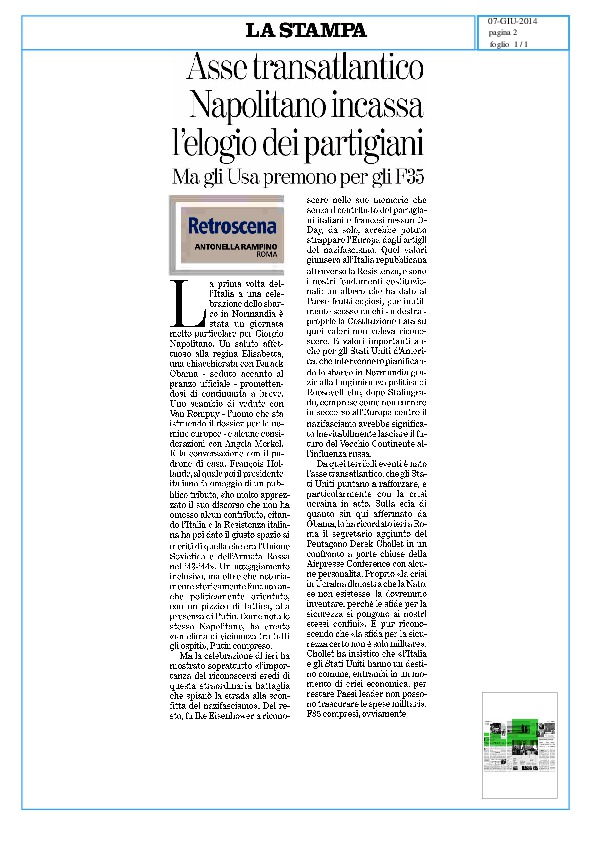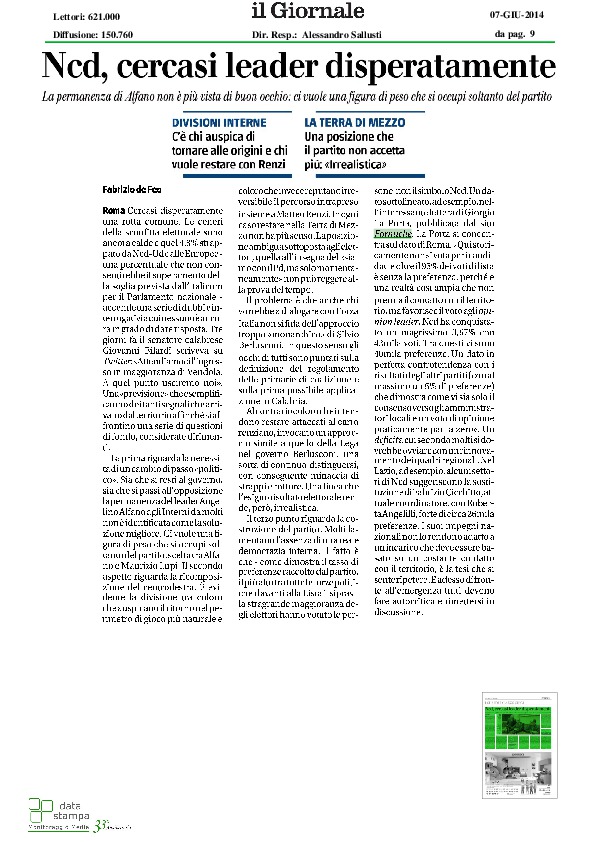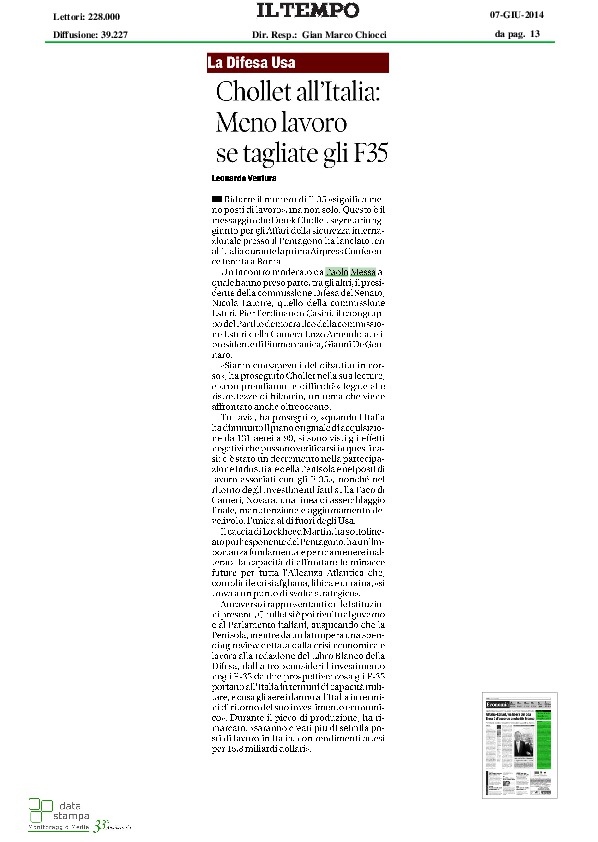Questo articolo è tratto dal sito personale di Mario Sechi L’autore del primo tweet della Cia è un genio perché con sublime leggerezza e autoironia ha riassunto l’essenza del mestiere della spia: non posso dirti niente, ma di te voglio sapere tutto. We can neither confirm nor deny that this is our first tweet. — CIA (@CIA) 6 Giugno…
Archivi
Perché fare testamento solidale
Una buona dose di scaramanzia e una certa ignoranza delle norme sono gli ingredienti della diffusa riluttanza degli italiani a fare testamento. Ed è ancora meno conosciuto e utilizzato il lascito solidale, cioè la possibilità di inserire nelle volontà testamentarie donazioni a favore di organizzazioni no profit. Ma qualcosa sta cambiando nel Paese e, sebbene i numeri non si avvicinino…
Tutti gli accordi economici tra Messico e Italia
Il presidente messicano Enrique Peña Nieto è di transito in Italia. Dopo due giorni in Portogallo - e prima di proseguire il tour in in Spagna - il capo di Stato sarà in un’udienza privata con Papa Francesco in Vaticano il 7 giugno. In questa occasione non avrà modo di incontrare il premier Matteo Renzi, che si prepara per la…
Ecco perché l'intesa energetica tra Russia e Cina non minaccia troppo l'Europa
Un vecchio leit-motiv nel dibattito sulla sicurezza energetica afferma che, se è vero che l’Europa è strettamente dipendente dalle forniture russe di energia, al tempo stesso è la Russia ad avere nell’Europa il suo unico mercato di sbocco, almeno per quanto riguarda l’export di gas naturale: e questa reciproca dipendenza rafforza l’incentivo alla cooperazione tra cliente e fornitore, in una…
Ecco perché la Cia è approdata su Twitter
La Cia approda su Twitter. Ieri, nel giorno della commemorazione per lo sbarco in Normandia, l'agenzia americana, simbolo dello spionaggio nel mondo, ha diffuso il suo primo "cinguettio". E per farlo ha scelto la strada dell'ironia, con un messaggio divertente, molto apprezzato e condiviso dagli internauti: "Non possiamo confermare, né negare che questo sia il nostro primo tweet". We can…
Vi spiego perché Standard&Poor's ha bocciato l'Italia (ma le tv non lo sanno)
La Rai ha dato ancora volta prova di essere "governativa", quale che sia il governo al potere. Ciò non deve sorprendere dato che è Tv di Stato e occorre "attaccare l’asino dove vuole il padrone". Stupisce che anche si siano allineati pure il Tg5 e La 7 nel sostenere che il rating dato da Standard&Poor's all’Italia vuole dire che "il bicchiere è…
Leopolda Blu, unico antidoto al centrodestra anestetizzato
Riceviamo e volentieri pubblichiamo In soli due giorni, il «Contratto per il Centrodestra» ha raccolto oltre 500 firme. Questo successo impone fin d’ora qualche riflessione supplementare, per rispondere alle inevitabili perplessità e critiche che si sono levate nei confronti di quest’iniziativa, da taluni bollata come perdente in partenza perché priva di una figura di riferimento già nota all’opinione pubblica. In…






